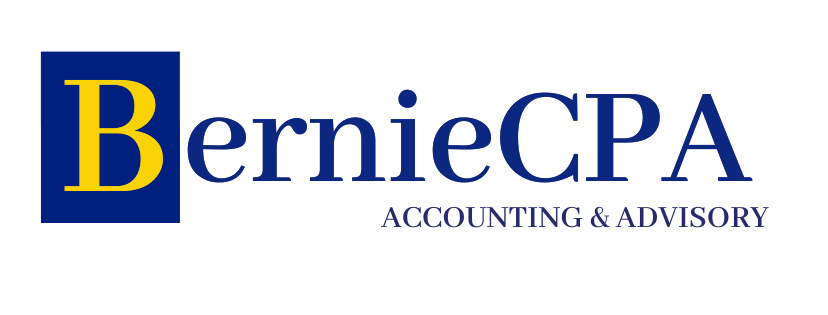The Road to Transparency: How Beneficial Ownership Filing in 2024 Will Impact Businesses
Beneficial ownership filing refers to the process of identifying and reporting the individuals who ultimately own or control a company. This information is crucial for understanding the true ownership and control of a business, as it helps to prevent money laundering, tax evasion, and other illicit activities. In many countries, including the United States, beneficial ownership filing is a legal requirement for certain types of businesses, such as corporations and limited liability companies. The information collected through beneficial ownership filing typically includes the names, addresses, and other identifying information of the beneficial owners, as well as the nature and extent of their ownership or control.
The purpose of beneficial ownership filing is to increase transparency and accountability in business operations, as well as to help law enforcement and regulatory agencies track and prevent financial crimes. By requiring companies to disclose their beneficial owners, governments can better understand who is truly in control of a business and hold them accountable for any illegal activities. Additionally, beneficial ownership filing can help to protect the integrity of the financial system by making it more difficult for individuals to hide their assets and engage in illicit financial activities. Overall, beneficial ownership filing is an important tool for promoting transparency and preventing financial crimes in the business world.
The Impact of Beneficial Ownership Filing on Businesses
Beneficial ownership filing can have a significant impact on businesses, both in terms of compliance requirements and operational transparency. For many companies, the process of identifying and reporting their beneficial owners can be complex and time-consuming, requiring them to gather and verify extensive amounts of information. This can be particularly challenging for businesses with complex ownership structures or international operations, as they may need to navigate different legal requirements and reporting standards in multiple jurisdictions. Additionally, the cost of compliance with beneficial ownership filing requirements can be substantial, as companies may need to invest in new systems and processes to collect and report the necessary information.
On the other hand, beneficial ownership filing can also have positive effects on businesses by increasing transparency and accountability in their operations. By disclosing their beneficial owners, companies can demonstrate their commitment to ethical business practices and build trust with customers, investors, and other stakeholders. This can help to enhance their reputation and attract new business opportunities, as well as reduce the risk of being associated with illicit activities. Furthermore, beneficial ownership filing can help businesses to identify and mitigate potential risks related to their ownership structure, such as conflicts of interest or exposure to financial crimes. Overall, while beneficial ownership filing may present challenges for businesses, it can also bring about important benefits in terms of operational transparency and risk management.
Compliance and Regulatory Changes
The introduction of beneficial ownership filing requirements has led to significant changes in compliance and regulatory practices for businesses around the world. In many countries, governments have implemented new laws and regulations to mandate the disclosure of beneficial owners by certain types of companies, such as those involved in financial services, real estate, or other high-risk industries. These regulations typically require companies to collect and report detailed information about their beneficial owners to government agencies or other designated authorities. Failure to comply with these requirements can result in severe penalties, including fines, sanctions, or even criminal charges.
As a result of these regulatory changes, businesses have had to adapt their compliance practices to ensure that they are meeting their beneficial ownership filing obligations. This has often involved investing in new technologies and processes to collect, verify, and report the necessary information in a timely and accurate manner. Additionally, companies have had to develop internal controls and procedures to monitor and update their beneficial ownership information on an ongoing basis, as changes in ownership or control can occur over time. Overall, the introduction of beneficial ownership filing requirements has required businesses to make significant changes to their compliance practices in order to meet their legal obligations and avoid potential penalties.
Transparency and Accountability in Business Operations
One of the key benefits of beneficial ownership filing is its ability to promote transparency and accountability in business operations. By requiring companies to disclose their beneficial owners, governments can gain a better understanding of who is truly in control of a business and hold them accountable for any illegal activities. This can help to prevent money laundering, tax evasion, and other illicit financial activities by making it more difficult for individuals to hide their assets or engage in illegal transactions. Additionally, beneficial ownership filing can help to protect the integrity of the financial system by reducing the risk of illicit activities that could undermine public trust in the business world.
From a business perspective, transparency and accountability are also important for building trust with customers, investors, and other stakeholders. By disclosing their beneficial owners, companies can demonstrate their commitment to ethical business practices and reduce the risk of being associated with illicit activities. This can help to enhance their reputation and attract new business opportunities, as well as reduce the risk of financial crimes that could damage their operations. Overall, beneficial ownership filing plays a crucial role in promoting transparency and accountability in business operations, which is essential for maintaining public trust and preventing financial crimes.
The Role of Technology in Beneficial Ownership Filing
Technology plays a crucial role in facilitating beneficial ownership filing by enabling companies to collect, verify, and report the necessary information in a more efficient and accurate manner. Many businesses have invested in new technologies and systems to streamline their beneficial ownership filing processes, such as electronic databases, identity verification tools, and reporting platforms. These technologies can help companies to collect and store the necessary information about their beneficial owners in a secure and accessible manner, as well as verify the accuracy of this information through various means such as identity verification checks or document authentication.
Furthermore, technology can also help businesses to monitor and update their beneficial ownership information on an ongoing basis by automating certain processes or integrating with other systems. This can help companies to stay compliant with their reporting obligations and reduce the risk of errors or omissions in their beneficial ownership filings. Additionally, technology can also enable governments and regulatory agencies to access and analyze beneficial ownership information more efficiently, which can help them to identify potential risks or trends related to financial crimes. Overall, technology plays a crucial role in facilitating beneficial ownership filing by enabling companies to meet their reporting obligations more efficiently and accurately.
Implications for Global Business Practices
The introduction of beneficial ownership filing requirements has significant implications for global business practices by increasing transparency and accountability in cross-border transactions. As more countries implement regulations mandating the disclosure of beneficial owners by certain types of companies, businesses operating internationally must navigate different legal requirements and reporting standards in multiple jurisdictions. This can be particularly challenging for multinational corporations with complex ownership structures or operations in high-risk industries, as they may need to comply with various beneficial ownership filing requirements across different countries.
Furthermore, the implications of beneficial ownership filing extend beyond compliance requirements to impact global business practices more broadly. By requiring companies to disclose their beneficial owners, governments can gain a better understanding of who is truly in control of a business and hold them accountable for any illegal activities. This can help to prevent money laundering, tax evasion, and other illicit financial activities that could undermine public trust in the global business world. Additionally, beneficial ownership filing can help businesses to identify potential risks related to their ownership structure or exposure to financial crimes when operating internationally. Overall, the implications of beneficial ownership filing for global business practices are significant in terms of increasing transparency and accountability in cross-border transactions.
Challenges and Opportunities for Businesses
The introduction of beneficial ownership filing requirements presents both challenges and opportunities for businesses in terms of compliance obligations and operational transparency. On one hand, businesses may face significant challenges in meeting their reporting obligations due to the complexity of identifying and verifying their beneficial owners. This can be particularly challenging for companies with complex ownership structures or international operations that must navigate different legal requirements across multiple jurisdictions. Additionally, the cost of compliance with beneficial ownership filing requirements can be substantial for businesses that need to invest in new technologies and processes to collect and report the necessary information.
On the other hand, there are also opportunities for businesses to benefit from increased transparency and accountability through beneficial ownership filing. By disclosing their beneficial owners, companies can demonstrate their commitment to ethical business practices and build trust with customers, investors, and other stakeholders. This can help to enhance their reputation and attract new business opportunities while reducing the risk of being associated with illicit activities. Furthermore, beneficial ownership filing can help businesses to identify potential risks related to their ownership structure or exposure to financial crimes when operating internationally. Overall, while there are challenges associated with meeting beneficial ownership filing requirements, there are also opportunities for businesses to benefit from increased transparency and accountability in their operations.
In conclusion, beneficial ownership filing is an important tool for promoting transparency and preventing financial crimes in the business world. It has significant implications for global business practices by increasing transparency and accountability in cross-border transactions while presenting both challenges and opportunities for businesses. Technology plays a crucial role in facilitating beneficial ownership filing by enabling companies to meet their reporting obligations more efficiently and accurately. Compliance with beneficial ownership filing requirements has led to significant changes in compliance practices for businesses around the world while promoting transparency and accountability in business operations. Overall, while there are challenges associated with meeting beneficial ownership filing requirements, there are also opportunities for businesses to benefit from increased transparency and accountability in their operations.


